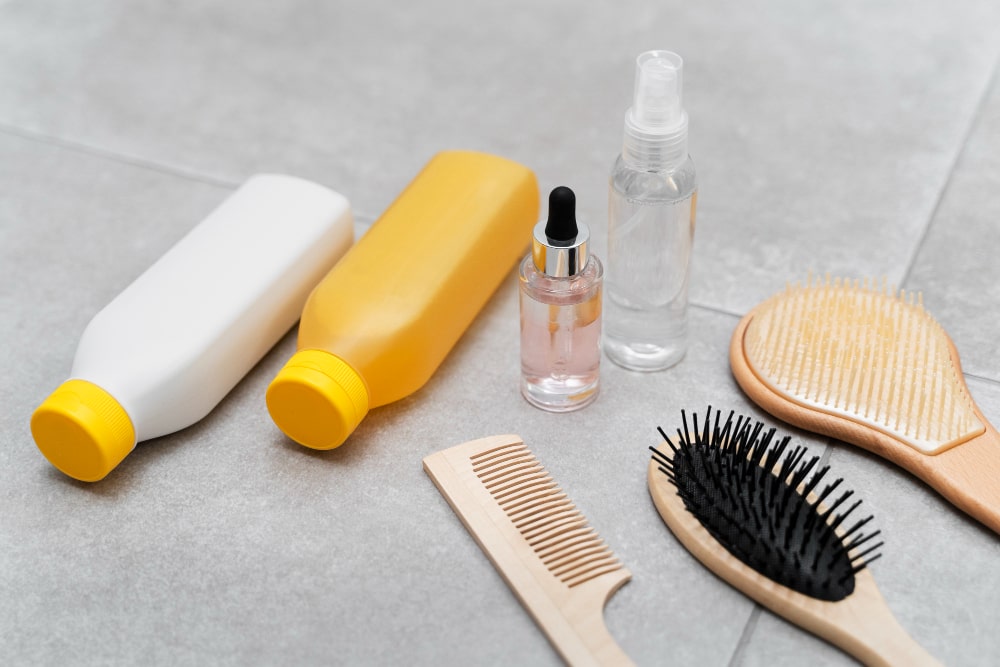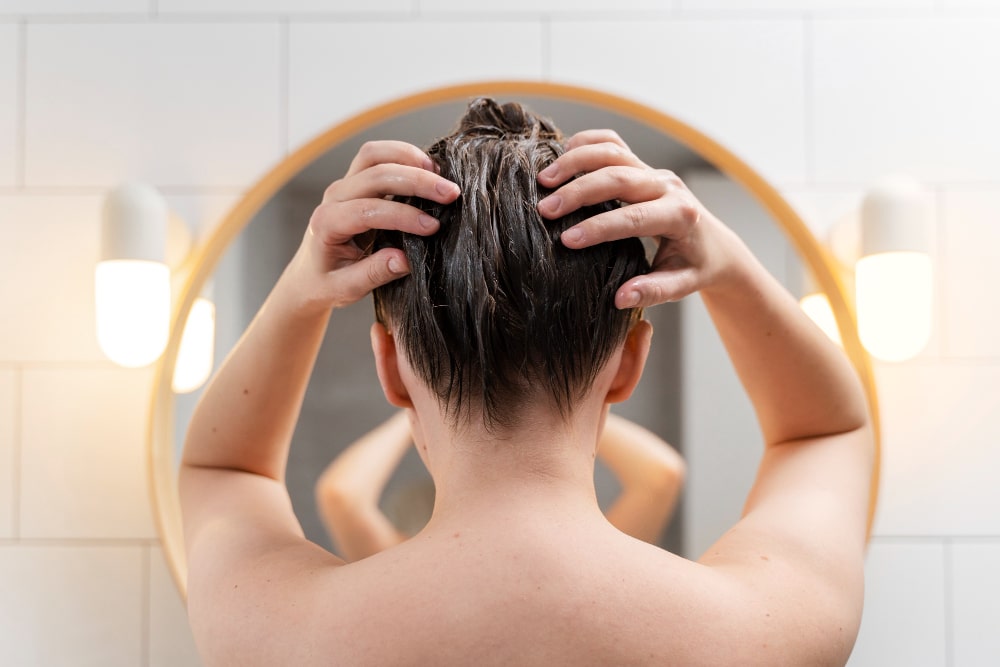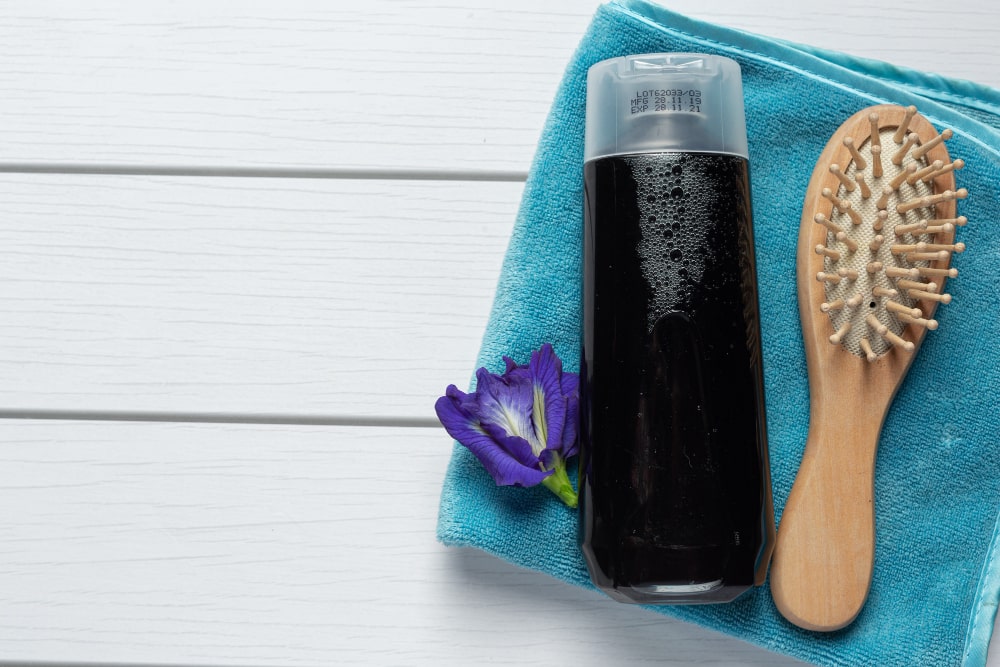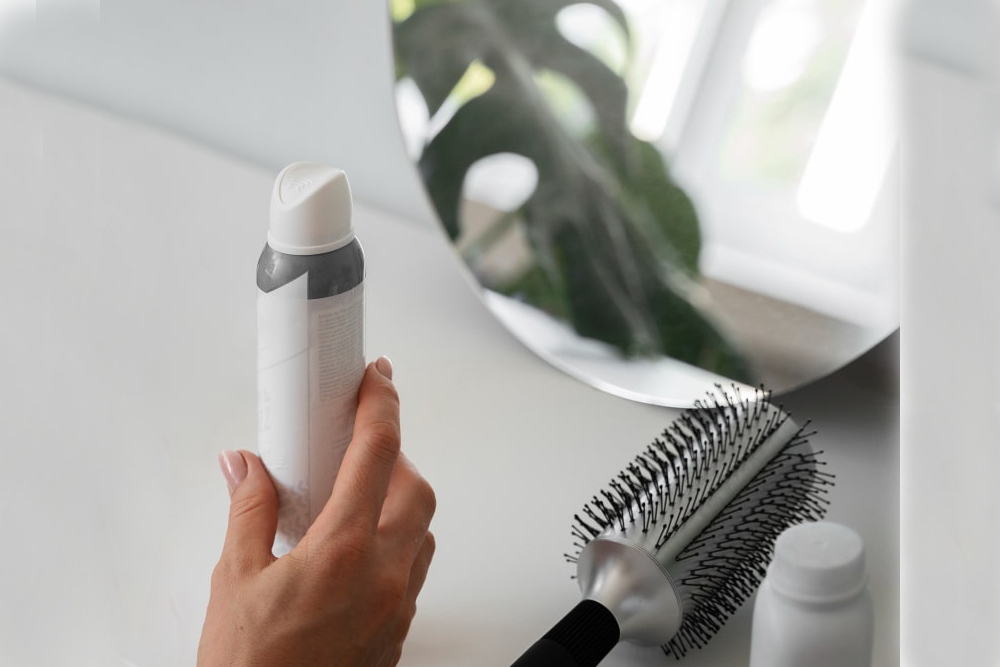Hair loss is a condition that can have many causes and affects many men and women in different ways. It is important to understand the causes of hair loss and the effect it can have on self-esteem and confidence. One of the most common factors associated with hair loss is using certain shampoos unsuitable for individual scalp types. In this guide, we will explore the types of shampoos that can cause hair loss and natural and organic alternatives to help keep your hair healthy and strong.
Overview of Hair Loss
Hair loss is any thinning or baldness that occurs on the head, usually on both sides of the scalp. It is a common problem that affects individuals of all ages, genders, and ethnicities. While it is normal for people to shed some hair daily, excessive shedding or thinning can indicate a more serious problem. It is important to identify the cause of your hair loss to determine the best course of action.
Importance of Choosing the Right Shampoo
The shampoo you choose to use can significantly impact your hair health. Some shampoos contain harsh chemicals that strip away natural oils and weaken the strands, which can lead to scalp irritation, breakage and even hair loss. Therefore, it is important to read labels carefully and consult with an expert if necessary before choosing a shampoo to ensure that you are not using shampoos that cause hair loss.

Read More: Scalp Yeast Infection: Causes, Symptoms, Treatment
Understanding Hair and Scalp Health
Anatomy of Hair and Scalp
The skin on the head is known as the scalp, which comprises two layers: the epidermis (top layer) and the dermis (second layer). The dermis provides nourishment to the hair follicles and contains sweat glands, sebaceous glands, blood vessels, and nerve endings. Hair is made up of three layers: the cuticle (outer layer), the cortex (middle layer), and the medulla (inner layer).
The hair follicles produce new strands of hair and maintain their strength and integrity. Factors such as age, genetics, hormones, and diet can affect the health of the hair follicles. Healthy follicles are essential for growing strong, healthy strands of hair.
Factors Affecting Hair Health
Hair growth is affected by factors such as stress levels, hormonal changes, medical conditions, medications, and even certain hairstyles. Excessive styling or heat styling can damage the cuticles and weaken the strands. Smoking has also been linked to hair loss, as it reduces the amount of oxygen and nutrients available to the follicles.
Common Causes of Hair Loss
The most common cause of hair loss is genetics, but other factors such as medical conditions, medications, and nutrition deficiencies can also contribute to hair loss. Alopecia areata is an autoimmune disorder that causes patches of hair loss on the scalp and body. Thyroid issues, iron deficiencies, and scalp infections can also lead to hair loss. In addition, certain hairstyles, such as tight braids or ponytails, can weaken the hairs and cause them to break off.
It is important to note that certain shampoos may also cause to hair loss. Some contain harsh chemicals and detergents that strip away natural oils from the scalp and weaken the strands. Read on to learn more about specific products with hair loss reports, ingredients to look out for, and consumer reviews and experiences.
Read More: Does Alcohol Cause Hair Loss: Everything You Need to Know
Shampoo Brands and Ingredients to Be Cautious Of
Products With Hair Loss Reports
There are several popular shampoos on the market that have been reported to cause hair loss among users, such as Head & Shoulders and Pantene Pro-V. Both of these products contain harsh detergents and chemicals that may strip away natural oils from the scalp and weaken the strands, making them prone to damage over time which can lead to hair loss. It is important to remember that only some people who use these shampoos that cause hair loss will experience this issue. However, if you are experiencing excessive shedding or thinning of the hair, it may be necessary to look into more gentle alternatives.

Ingredients to Look Out For
Sodium lauryl sulfate (SLS) and sodium laureth sulfate (SLES) are two common surfactants used in commercial shampoos. These ingredients irritate the scalp and strip away natural oils, leading to dryness and breakage of the hair strands.
Artificial fragrances, colorants, and preservatives can also cause irritation or allergic reactions on sensitive scalps. Read labels carefully and look for products that are free from harsh chemicals, dyes, and fragrances.
Consumer Reviews and Experiences
Reading reviews from other consumers can provide valuable insight into a product’s effectiveness and any associated side effects or concerns. Most websites have customer reviews for each product, so take the time to read through them before making your purchase. This will help you make an informed decision and avoid products that may have a negative impact on your hair health.
Read More: Does Lupus Cause Hair Loss? Everything You Need To Know
How to Choose a Hair-Friendly Shampoo
1) Do Your Research
Researching shampoos online can help you identify the best one for your needs. Look at ingredient lists and read consumer reviews to understand what others are experiencing with a particular product. Pay special attention to harsh ingredients such as SLS and SLES, artificial fragrances, colorants, and preservatives.
2) Consult an Expert
If you still need to decide which shampoo to use, consider consulting an expert. Trichologists or dermatologists can provide personalized advice based on your individual needs. They can also help identify any underlying causes of hair loss and suggest treatments or lifestyle changes to promote healthier hair growth.
3) Consider Natural Alternatives
If you’re looking for a more natural solution, several all-natural shampoos on the market are free from harsh chemicals and additives. Many of them contain nourishing ingredients such as aloe vera, coconut oil, and chamomile to help soothe the scalp and strengthen the strands.
Read More: Can Dry Scalp Cause Hair Loss? Everything You Need to Know
List of Shampoo Ingredients to Avoid
When looking for a shampoo, it is important to read the ingredients list and avoid products that contain harsh chemicals. Here is a list of some common ingredients to look out for:
- Sodium lauryl sulfate (SLS)
- Sodium laureth sulfate (SLES)
- Artificial fragrances and colorants
- Parabens and formaldehyde
- Phthalates
- Triclosan
- Propylene glycol
By avoiding these chemical ingredients, you can reduce the risk of irritation or allergic reactions on your scalp. A shampoo free from harsh chemicals will also be better for the environment and more gentle on your hair.
Tips for Healthy Hair Care
1) Avoid Over styling
Excessive styling or heat styling can damage the cuticles and weaken the hair. Limit your use of styling tools to reduce the risk of breakage and thinning.
2) Eat a Balanced Diet
A healthy diet rich in vitamins, minerals, and essential fatty acids can nourish the hair follicles and promote healthy hair growth. Foods such as eggs, fish, nuts, and leafy greens are all excellent sources of vital nutrients for the scalp and hair.
Read More: Can Low Vitamin D Cause Hair Loss? How to Maintain Level
3) Use Nourishing Hair Masks
Regular use of deep conditioning masks can provide extra nourishment to your hair and help protect it from damage. Look for masks that contain natural oils such as coconut, argan, or avocado oil to hydrate and strengthen the strands.
4) Take Breaks Between Washes
It is important to give your scalp and hair time to rest between washes. Use a dry shampoo or natural oils such as argan or coconut oil when you don’t wash your hair to keep it looking and feeling its best.
5) Seek Professional Treatment
If you are still experiencing hair loss despite making these lifestyle changes, it is important to seek professional help. A trichologist or dermatologist can provide personalized advice and suggest treatments that may benefit you.
6) Use Gentle Hair Care Products

It is important to look for gentle shampoos and conditioners on the scalp and hair. Look for products free from harsh detergents, fragrances, and colorants. Natural ingredients such as aloe vera, coconut oil, argan oil, and chamomile can help soothe the scalp and nourish the strands.
By following these tips, you can keep your hair healthy and strong while reducing the risk of hair loss. Remember to do your research and consult an expert if necessary to ensure that you are choosing the best products and treatments for your individual needs.
Read More: Can Wearing a Hat Cause Hair Loss: Everything You Need to Know
Consulting a Professional
If you are experiencing excessive hair loss or thinning, it is important to seek professional help. Trichologists and dermatologists can provide personalized advice based on your individual needs. They may suggest treatments such as laser therapy, platelet-rich plasma (PRP), or other medications to help promote healthy hair growth.
In some cases, the cause of the hair loss may be due to a hormonal imbalance or nutritional deficiency. In this case, your doctor may suggest dietary changes or hormone therapy to address the underlying issue and help improve the health of your scalp and hair.
Conclusion
In conclusion, hair loss can be a frustrating experience, but with the right approach and avoiding shampoos that cause hair loss, you can help promote healthy hair growth. Be sure to research and consult an expert if necessary to identify the best products and treatments for your individual needs. Avoid harsh ingredients such as SLS and SLES, artificial fragrances, colorants, and preservatives in shampoos, and opt for nourishing ingredients such as aloe vera, coconut oil, and chamomile. Lastly, take steps to reduce excessive styling or heat styling to protect the cuticles from damage and reduce the risk of breakage. With a little effort and commitment, you can help restore your hair’s vitality and strength.
Read More: Foods That Cause Hair Loss: Everything You Need to Know
FAQs
Common signs of hair loss caused by shampoo include excessive shedding, thinning of the strands, and scalp irritation. If you experience any of these symptoms after using a particular shampoo, it is important to discontinue use and consult an expert for personalized advice.
Yes, natural oils such as coconut oil, argan oil, or avocado oil can all be used to provide extra nourishment to your hair. Massage a few drops of the oil into your scalp and strands before washing it out with shampoo. This will help hydrate, strengthen the hair, and reduce the risk of breakage.
Yes, many people have found success with using natural alternatives such as apple cider vinegar (ACV) rinse or baking soda wash. ACV can help to balance the pH levels in the scalp and remove buildup from styling products, while baking soda can help to exfoliate the scalp and reduce itching or flaking gently. It is important to do your research and consult a professional if necessary to ensure that you are choosing an appropriate product for your individual needs.
It is not recommended to dye your hair when experiencing excessive shedding or thinning of the strands. This is because chemical dyes can further damage the hairs and irritate the scalp, leading to more hair loss. If you choose to dye your hair, it is important to use a gentle product free from harsh chemicals. Additionally, be sure to consult a professional before coloring your hair if necessary.

